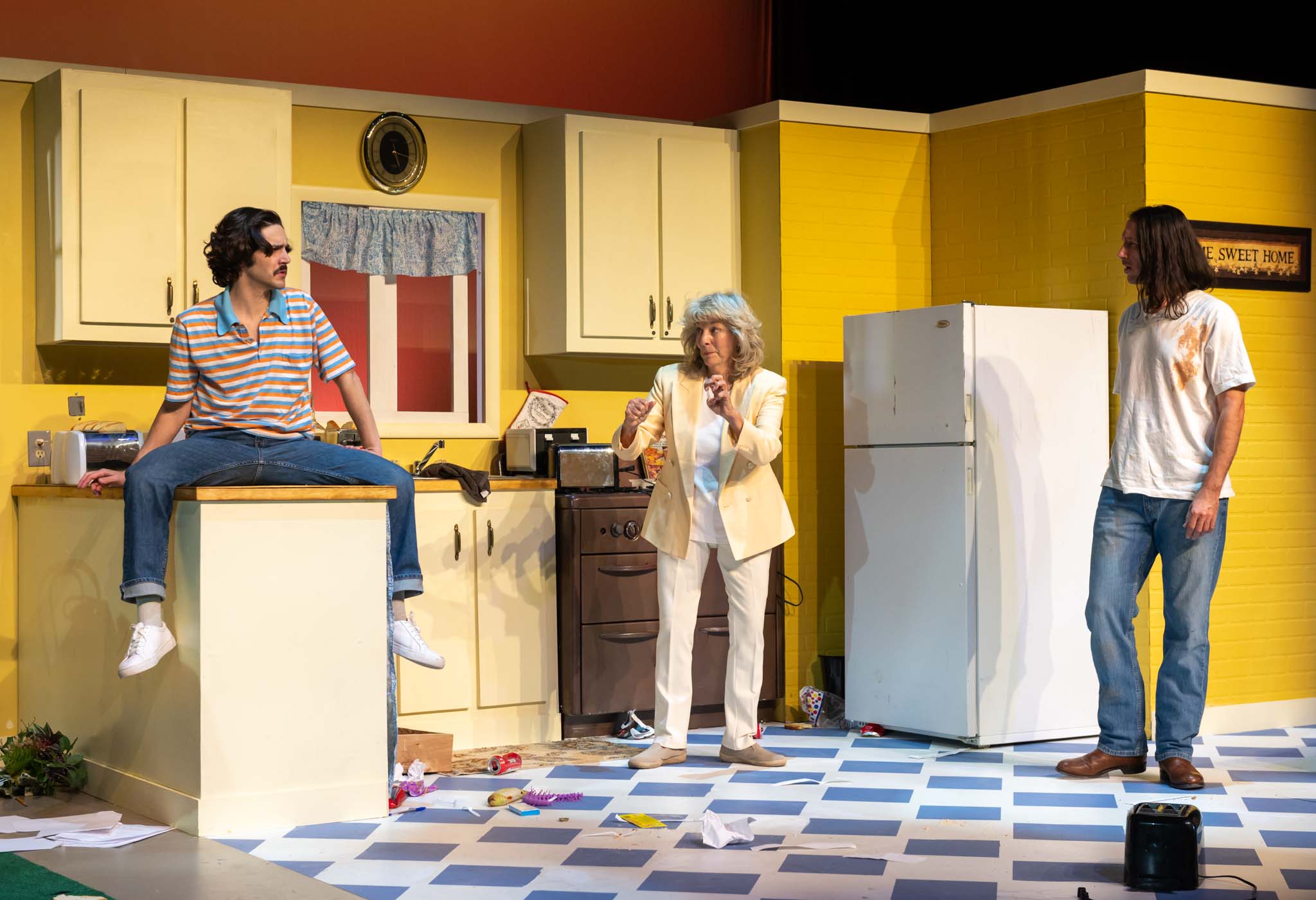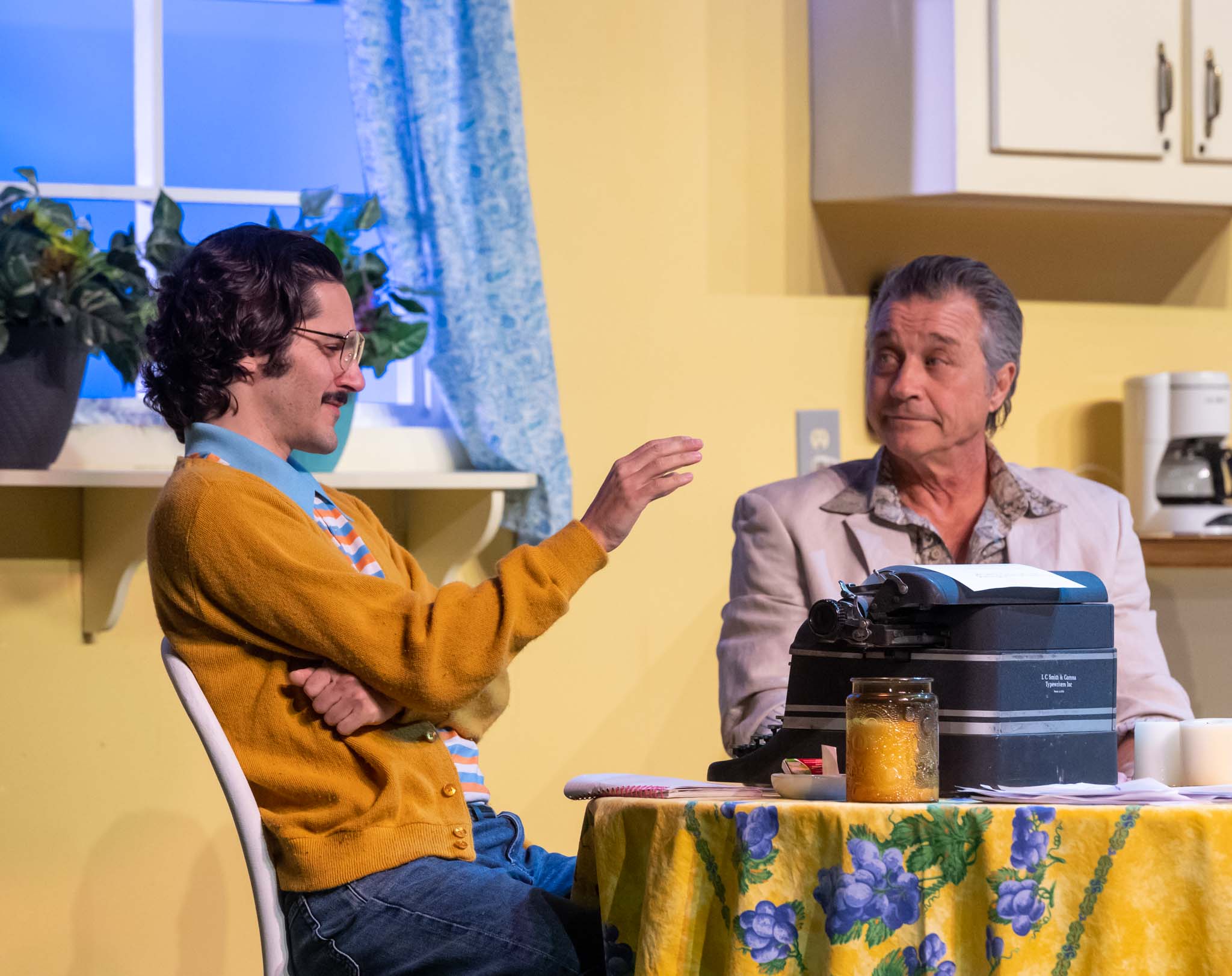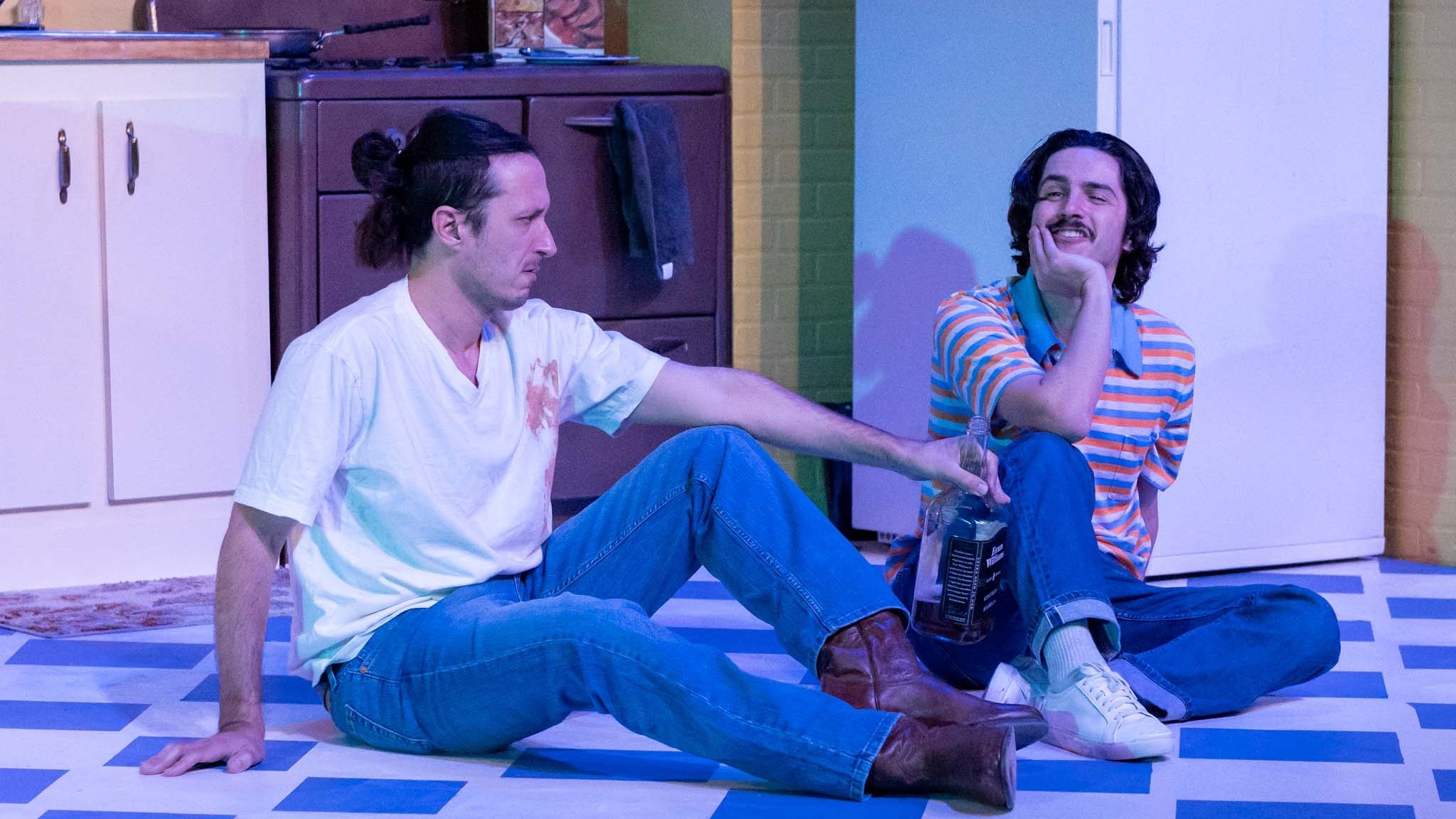IVINS — The latest dramatic contribution at the Center for the Arts at Kayenta steps outside the typical Southern Utah theater offerings of musicals and happy endings with Sam Shepard’s grisly tale of two estranged brothers grappling to come to grips with their differences — and similarities — in True West. Directed by Rachel Park, this play does exactly what the playbill says it will do: presenting “a grim slice of Americana” while slowly unravelling the complexities that exist within the dysfunctional relationship between two brothers: one a Hollywood screenwriter, the other a petty thief. True West is heavy, and a little dark, but it is in the darkness of the story that leading actors David Rosenblatt (playing Austin) and Paul Turbiak (as Lee) really shine.

True West is a story does more than entertain. It makes its audience think. It stretches the mind and allows the viewer to consider the lifelong impact of being raised in an alcoholic home. It also paints a vivid picture of what over-indulgence in that same alcohol can inhibit a rational mind when making decisions. From the opening scene it was clear the experience both Rosenblatt and Turbiak bring to the stage is a boon to the entire show. Between the scripted awkward pauses and disjointed conversation of their first interaction in years, the history between the two brothers is peeled back in layers.
Maddening, thought-provoking layers.
Turbiak’s depiction of Lee, the petty thief whose recent time living alone in the desert seem to have left an indelible mark on his mind, was fascinating to behold. His deep, slow drawl was a toss between menacing and sympathetic; his piercing glare even more chilling than his red-faced rage. Meanwhile, Rosenblatt’s had a keen ability to show Austin remaining calm in the face of such frustration and fear. Rosenblatt painted a picture of a level-headed, albeit somewhat distracted, screenwriter and loving individual — which makes his transition in Act 2 a little difficult to swallow.

Both Rosenblatt and Turbiak were tasked with spending the majority of the second act performing inebriated characters — a difficult undertaking for any actor. Both handled it well for the most part, though Rosenblatt seemed to shift in and out of his drunkenness depending on the size of the words he was delivering. It was also extremely difficult to imagine these brothers were transported to this level of non-sobriety by mere alcohol alone. Their actions — both those called for in the script and those that seemed to be the actors’ interpretations of the scene — felt like something beyond that of a drunken haze. It felt much more like they had ingested some other illicit substances, though none were shown or mentioned. That, however, is more a criticism of the playwright and less of those on stage.
Similarly, when Mom (played by Kristin DeNure Hunt) arrives on the scene, her under-reaction to all that has happened is astounding. Perhaps Shepard’s decision to show her at this level of detachment speaks to the self-preservation she has resorted to after years of living with an alcoholic husband. But her inaction at the climax of the play as her two sons are in a fight for one of their lives just did not seem plausible. While the vast majority of the play focuses on Lee and Austin as the only two on stage, Douglas Caputo’s strong performance as Saul, the smooth-talking producer, added depth to the conflict as the play moved along.

The simple, but adequate, set design (uncredited) allowed the viewer to feel the presence of the boys’ mother long before her arrival on stage with its decorative plates, the Home Sweet Home sign and the plants (both watered and unwatered). However, it was the sound design by Joshua France that really helped to establish time of day crickets — chirping vs. sprinklers spraying in the background — and reminded the viewer that all this anger and sadness was taking place behind the closed doors in an otherwise picturesque suburban home.
Explicit language and content make this a production more suited to an adult audience. But for those looking to open their minds to some of life’s messier realities, True West is wonderfully true to itself.
[box]True West plays Wednesdays through Saturdays at 7:30 PM and Sundays at 6 PM through February 4 at the Center for the Arts at Kayenta (881 Coyote Gulch Circle, Ivins). Tickets are $10-35. For more information, visit www.kayentaarts.com.[/box]
